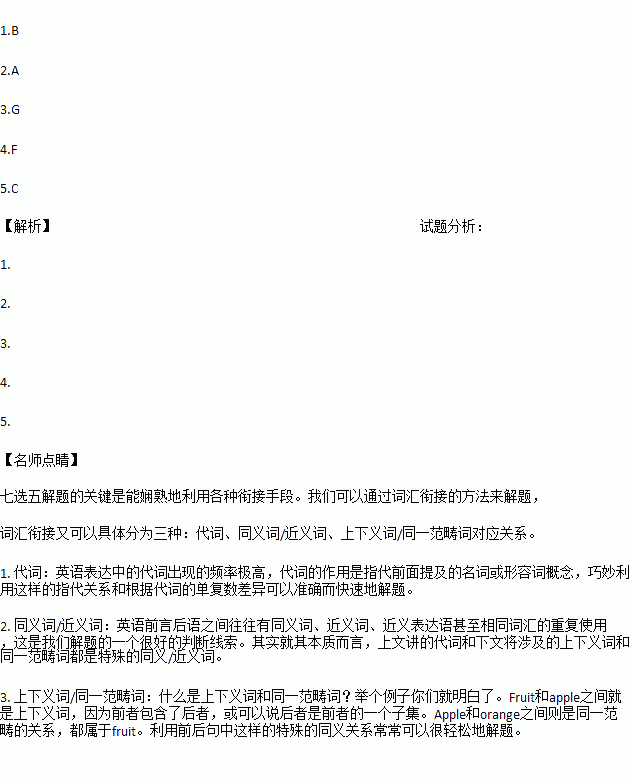题目内容
Third-Culture Kids
Did you grow up in one culture, your parents came from another, and you are now living in a totally different country? If so, then you are a third-culture kid!
The term “third-culture kid” (or TCK) was coined in the 1960s by Dr. Ruth. She first came across this phenomenon when she researched North American children living in India. Caught between two cultures, they form their very own. 1. About 90 percent of them have a university degree, while 40 percent pursue a postgraduate or doctor degree. They usually benefit from their intercultural experience, which helps them to grow into successful academics and professionals.
2. In fact many hardships may arise from this phenomenon. A third-culture kid may not be able to adapt themselves completely to their new surroundings as expected. Instead, they may always remain an outsider in different host cultures. Max, for example, experienced this fundamental feeling of strangeness throughout his life as a third-culture kid. 3. While this can be a way to create a network of friends all around the world, it can be difficult for a third-culture kid like Max to maintain close friendships and relationships.
For a third-culture kid, it is often easier to move to a new foreign country than to return to their “home” country. After living in Australia and South Korea for many years, Louis finally returned to Turkey as a teenager. But she felt out of place when she returned to the country where she was born. 4. She did not share the same values as her friends’ even years after going back home.
While a third-culture kid must let go of their identity as foreigner when he/she returns, the home country can prove to be more foreign than anything he/she came across before. The peer group they face does not match the idealized image children have of “home”.5.
As a part of the growing “culture”, TCKs may find it a great challenge for them to feel at home in many places.
A. Yet being a third-culture kid is no t always easy.
t always easy.
B. In general , they often reach excellent academic results.
, they often reach excellent academic results.
C. This often makes it hard for them to form their own identity.
D. However, their parents can help them see the opportunities of a mobile lifestyle.
E. Their experience abroad helps them to gain a better understanding of cultural differences.
F. Unlike other teens of her age, she didn’t know anything about current TV shows or fashion trends.
G. Additionally, making new friends and saying goodbye to old ones will at some point become routine for a third-culture kid.
While reading, you may focus on the Q(question) and A (answer) on the following web page.

Related Information Hotel Deals Today's deals Hotel Guide Hotel details Hotel Directory Contact info
My Travel Hotel Preference Check Reservations Tool Weather Maps Driving Directions | Q My husband and I would like to spend five or six days in the Maldives. Could you suggest some low-priced hotels? We'll be there in November. Jan Davies, email. A Prices in the Maldives are high. The cheaper hotels (and there aren't many) mightn't be much to look at, with unpleasant rooms, iron roofs, old buildings, poor and rough vegetation and basic facilities, but they get their atmosphere from cheerful customers and an untidy, free island feel. Angaga (South Ari Atoll, phone 0011 960 450510), Asdu Sun Island (North Male Atoll, email info@asdu.com.mv) are both a bit like this. You'll be there in the low season (May to November), when its' still warm, but there's a greater likelihood of rain, so you should be able to get a double (standard ) room with full board (three meals a day) for $ 100 a night. However, pricing structures for the hotels are enormously complex for standard, superior and luxurious rooms. Q My husband and I are from Australia. We are planning a four-week trip to London, Dublin and Paris in October and we are shocked by the cost of hotels. We have searched the Internet and hotel books given to us by tourist authorities but we can't find anything cheaper than $ 150 a night. Joan Maloney, email. A For Australians traveling Europe, especially its capital cities, is expensive. You may have to increase your budget . However, if you can't afford these costs, then you should consider staying in hotels where the cheapest twin rooms with shared bathroom cost about$20 a person in Dublin and Paris and $35 in London. The minimum you would pay for a double room in a central area is $50 a person in Dublin and Paris and $70 in London. These prices are for shared bathroom facilities, though you will get a wonderfully unhealthy cooked breakfast thrown in. Not all hotels are equal, of course, and it's a good idea to consult a guidebook with a good reputation. |
1.The hotel Angaga in the Maldives_________.
A. attracts untidy people B. has some basic facilities
C. has the best landscape D. can be contacted by email
2.If you spend your holiday in the Maldives in February, _________
A. there is a greater likelihood of rain
B. standard, superior and luxurious rooms are all available
C. the weather will probably be better than that of the low season
D. a standard room with full board will cost less than $100 a night.
3.What is the advice for the couple planning to visit Europe in October?
A. They should stay in hotels in a central area
B. They could live in hotel rooms of lower standard
C. They should put up with the wonderfully unhealthy cooked breakfast.
D. They should buy a reliable guidebook instead of increasing the budget.



 d WarⅡ, farmers began to use pesticides (农药) such as DDT on their crops. Rachel was concerned about the effects that large-scale spraying of DDT may have on the health of people as well as the environment. Rachel began to gather research material on pesticides and write a book about the subject.
d WarⅡ, farmers began to use pesticides (农药) such as DDT on their crops. Rachel was concerned about the effects that large-scale spraying of DDT may have on the health of people as well as the environment. Rachel began to gather research material on pesticides and write a book about the subject. She had her first book published.
She had her first book published.